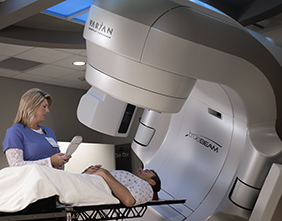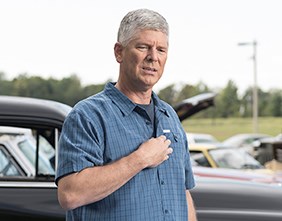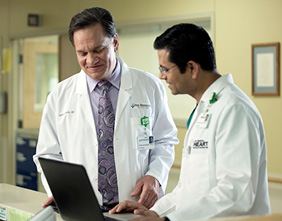Lima Memorial Health Focus: Teamwork Improves Patient Outcomes
posted on: 6/19/2017 10:30:59 AM
Health & Fitness Guest Columnist
Jennifer Tobin, PA-C
Midwest Surgical Specialists – Ear, Nose & Throat
Excellent patient experience, quality of care and personal job satisfaction depend on the collaboration of the healthcare team. A healthcare team consists of team members from various clinical and professional backgrounds. Trust, communication and role identification is vital to the success of the healthcare team. This multifaceted approach to patient care is necessary in achieving a high quality patient experience and clinical patient outcomes.

I recently had the honor of attending a retirement party for a former employer where members of our team reflected together on past experiences, challenges and successes in working in the healthcare arena. Common themes in reflections consisted of stories how one team member relied on another with expressions of gratitude and appreciation. From the beginning and throughout our years together, this employer taught me the value of teamwork and exemplified this in his interactions with every team member every day, despite educational background or role within in the team. He taught me that all roles were equally important and vital to the success of the team, and that it was important to value the input and trust the skills of other healthcare workers, regardless of their rank or position. I was advised that trusting in this concept and trusting in my team would be my best chance of success in the healthcare environment.
Each day working in the healthcare environment, communication between team members supports the patient’s experience and development of their plan of care. Throughout the patient’s journey they will interact with team members from a number of professional and clinical specialties including: certified medical assistants, registered nurses, phlebotomists, registered radiology technologists, surgical technologists, physician assistants, nurse practitioners, and physicians. During each interaction, information is collected and communicated between specialties. Each team member has an identified role that requires them to communicate with one another to piece together the patient’s plan of care. The quality of the patient’s experience with each clinical team member can be affected by the quality and effectiveness of communication that has occurred between the healthcare team members. Physician providers depend on each specialty and team member to perform their role and provide critical information that directs the patients’ plan of care.
In researching this topic, there is evidence to support that teamwork among healthcare workers is the optimal and necessary approach to patient care and quality clinical outcomes. According to the American Medical Association, collaboration and coordination between specialties and positions reduces medical errors, increases patient safety and satisfaction. The World Health Organization agrees citing six components for teamwork. These include the presence of a common purpose for care, measurable goals, effective leadership, effective communication, good cohesion and mutual respect. As a point of interest, the leadership position may be held by any member of the team. This is not necessarily the physician.
Over the years working with patients requiring medical attention for ears, nose and throat concerns, I witnessed the positive impact to their experience and their clinical outcomes when all team healthcare team members are invested in the common goal, work together and communicate effectively. When healthcare workers perform as a team with clearly identified roles, not only is enhanced job satisfaction is experienced, patients also see an immediate benefit to their overall well-being. Collaboration, communication, mutual trust and respect are the pillars to successful medical care and optimal clinical patient outcomes.
Originally published in The Lima News Health and Fitness section.
Website





